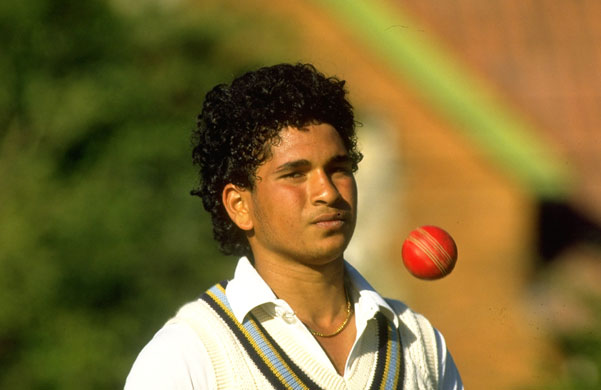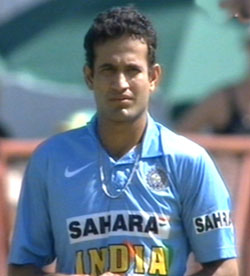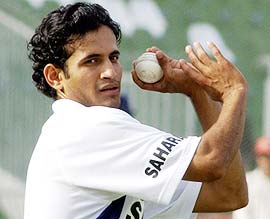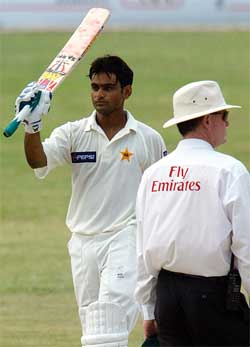sachin tendulkar biography
(born April 24, 1973, Bombay [Mumbai], India) Indian professional cricket player, considered by many to be one of the greatest batsmen of all time. In 2005 he became the first cricketer to score 35 centuries (100 runs in a single innings) in Test (international) play.
Tendulkar was given his first bat when he was 11. As a 14-year-old, he used it to score 329 out of a world-record stand of 664 in a school match. A year later he scored a century on his first-class debut for Bombay (Mumbai), and at 16 years 205 days he became India's youngest Test cricketer, making his debut against Pakistan in Karachi in November 1989. When he was 18 he scored two centuries in Australia (148 in Sydney and 114 in Perth), and in 1994 he scored 179 against the West Indies. In August 1996, at age 23, Tendulkar was made captain of his country's team.
Although India was defeated in the semifinals of the 1996 World Cup, Tendulkar emerged as the tournament's top run scorer, with 523 runs. In 1997 he was chosen for the Rajiv Gandhi Khel Ratna Award, the highest award given to an Indian athlete, for his outstanding performance in the 1997–98 season. India was defeated by Australia in the 1999 World Cup, failing to advance past the round of six, and was soundly defeated by both Australia and South Africa in series later that year. In the 2003 World Cup, however, Tendulkar helped his team advance as far as the finals. Though India was again defeated by Australia, Tendulkar, who averaged 60.2, was named the man of the tournament.
Tendulkar made history in December 2005 when he scored his record-breaking 35th century in Test play against Sri Lanka. The feat was accomplished in a total of 125 Tests and allowed Tendulkar to surpass the prolific Indian run scorer Sunil Gavaskar. In June 2007 Tendulkar reached another major milestone when he became the first player to record 15,000 runs in one-day international (ODI) play, and in January 2010 he became the first batsman to score 13,000 runs in Test play. One month later he scored a historic “double century” in a contest against South Africa, becoming the first man in history to record 200 runs in a single innings of ODI play. Throughout his long career Tendulkar was consistently ranked among the game's best batsmen. He was often likened to Australia's Don Bradman in his single-minded dedication to scoring runs and the certainty of his strokeplay off both front and back foot.
sachin tendulkar
sachin tendulkar
sachin tendulkar
sachin tendulkar
sachin tendulkar
sachin tendulkar
sachin tendulkar
sachin tendulkar





















































